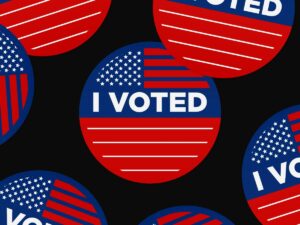
The US economy is one of the most diverse in the world and has a significant role in casinos. Casino industries are responsible for millions of jobs, and their relationship with the US government is critical. Casinos have long been an essential part of American culture, and their relationship with the government is complex.
The gambling industry is one of the world’s largest, significantly impacting social welfare. Casino industries also contribute to national economies, providing employment and revenue to local communities.
The current level of regulation in the US casino industry is unprecedented. It is due to several factors, including the growth of the gambling industry and its significant impact on society, the laws on gambling, and the role played by the government. Let’s Discuss more in-depth the US Economy and its implications for casinos.
How does gambling relate to economics?
Gambling increases the economy’s overall demand for goods and services. In 1996, Americans spent one out of every ten dollars on commercial gaming. This money directly stimulates the economy. This gambling-related expense might go up when the multiplier effect kicks in.
Casinos have been around for over 100 years, and their role in the United States economy is long and complex. Today, casinos play an essential role in the economy by providing a source of revenue for various industries, such as education and tourism. They also contribute to the overall fun and excitement that people want to bring to their lives.
In addition, casinos can play an essential role in financing new projects in the US economy. Gambling significantly impacts economic development and social stability, which is why it is so relevant to our local communities.
The US Economy and its impact on casino
Casinos have been in America since the early 1800s, and they’ve always been a part of the economy. The growth of casinos has come from various factors, including the lure of high-paying jobs and the ability to offer gambling services in a safe and comfortable environment.
The US economy has indirectly impacted casinos, causing them to lose money. It caused some casinos to close their doors, while others have continued to operate with smaller budgets.
The US economy has indirectly impacted casinos by causing them to lose money.
It caused some casinos to close their doors, while others have continued to operate with smaller budgets. In recent years, however, there has been a renewed focus on casino reform in the United States. It is partly due to the increasing popularity of online gambling and the rise in regulation around it.
Casinos in the United States are a significant part of the economy, and their impact on the gambling industry is evident. The country has over 60 casinos, with an estimated 11 billion in annual revenue. Casino gambling is among the most popular forms in the United States, accounting for about 20 percent of all slot machine profits.
Gambling also provides economic opportunities for individual businesses as well as government coffers. The industry has brought job growth and increased tax revenues for states and municipalities welcoming casinos into their communities.
Do casinos have a positive effect on economic growth?
Casinos have positively affected the US economy by increasing job opportunities, stimulating economic growth, and reducing crime. Casinos also play an essential role in creating social and cultural distractions from more severe problems. In some areas, casinos are the only or the most significant source of employment. In other areas, they are only a part of an overall effort to deal with economic downturns.
Many states have approved commercial casino gambling because they view it as an economic development tool.
The three most significant benefits are:
- Jobs.
- More tax revenue for local and state governments.
- An increase in local retail sales.

